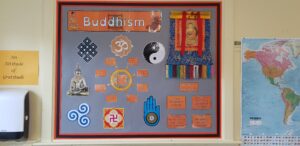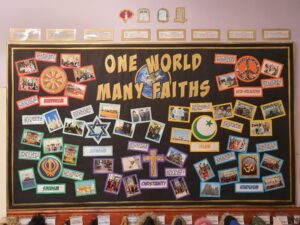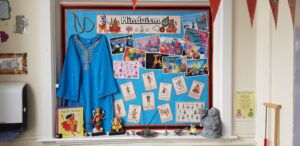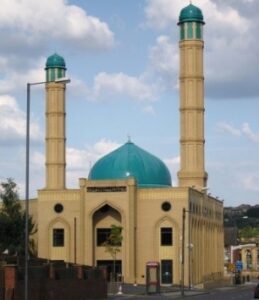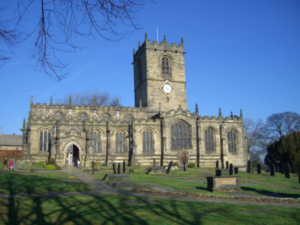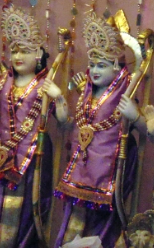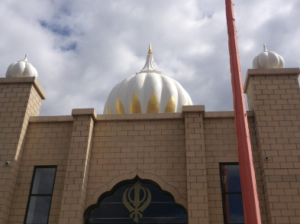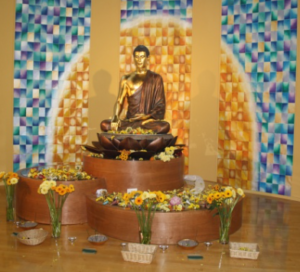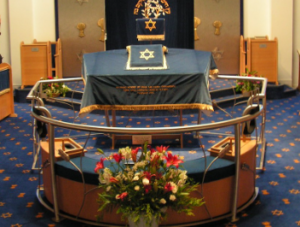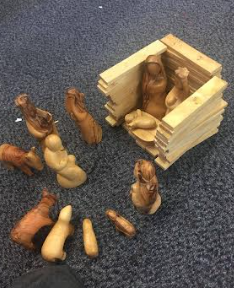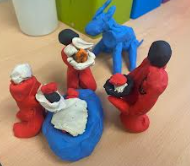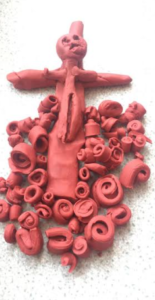RELIGIOUS EDUCATION
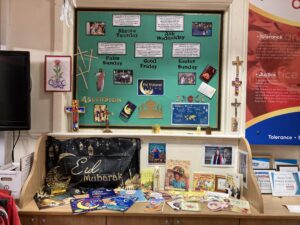
INTENT - OUR VISION FOR RELIGIOUS EDUCATION
Vision
Our vision is to be a truly inclusive school community where children flourish within a stimulating, challenging learning environment. As a school, we recognise that spiritual development lies at the heart of the curriculum. We believe that all members of our school community should experience Christianity through the life of the school as well as through the taught curriculum.
Values
Our key values are summarised by our mission statement ‘Together we are Porter Croft’. It is very important to us that all members of our community feel valued and part of a larger whole. In RE lessons, we aim to do this by:
Respect and Understanding: We aim to cultivate a deep respect for all faiths, beliefs, and cultures while fostering an understanding of the diversity that exists within our community.
Exploration and Reflection: Children are encouraged to explore various religious traditions and philosophies, allowing them to reflect on their significance in the world today.
Spiritual Development: We nurture the spiritual growth of our pupils by providing opportunities for reflection, contemplation, and the exploration of personal beliefs.
In addition to this, we have our ongoing School Values of- koinonia, compassion, tolerance, respect, thankfulness, humility, justice and forgiveness- which are explored in assemblies and referred back to in class.
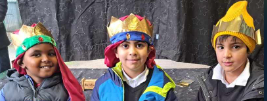
WHY RELIGIOUS EDUCATION IS IMPORTANT?

The aim and purpose of teaching R.E. is to provide children with the knowledge and understanding of different religious and non-religious worldviews. This will enable children to understand their own beliefs and respect those of others. Children will be able to:
- Understand the nature, role and influence of religion and worldviews.
- Engage with sources of authority.
- Pursue a personal quest for meaning, purpose and truth.
- Formulate and express reasoned opinions and arguments and be confident to hold up an informed conversation based on their own views.
- Develop and use enquiry skills.
- Have a democratic voice and listen to others.
Religious Education (RE) plays a fundamental role in shaping the educational journey of our children. Rooted in the Christian ethos, our school community embraces diversity, encourages understanding, and fosters respect for all faiths and beliefs.
Curriculum Overview
Our RE curriculum is carefully designed to meet the needs of our pupils and of the Church of England's vision for education. We aim to equip children with the knowledge and skills to understand the beliefs of others and to live in an ever changing and diverse world. It encompasses:
Christian Teaching: As a Church of England school, Christianity is at the core of our RE curriculum. We explore the Bible, Christian festivals, and teachings while emphasizing moral and ethical values.
Learning about other Faiths and Worldviews: Pupils learn about other major world religions and worldviews including Islam, Judaism, Hinduism, Sikhism and Humanism. This exploration encourages respect and understanding of diverse beliefs.
Philosophical and Ethical Discussions: We engage children in thought-provoking discussions on moral and ethical issues, encouraging critical thinking and personal reflection.
RE and personal Development: RE plays an important part in the contribution to the personal development of pupils. As well as acquiring knowledge and understanding about religious and non-religious worldviews, RE helps pupils to develop their own worldviews – their own understanding of the world and how to live. RE offers all pupils opportunities to explore some of the big questions addressed by religious traditions and non-religious worldviews.
British Values: RE provides opportunities to explore British values and these are linked into lessons and discussions where possible.
Interactive Learning: We use a range of resources such as religious artefacts to bring religious teachings to life. We also have guest speakers, The Easter and Christmas experiences, Godly play and storytelling. Cross curricular links are made where possible.
Visits to places of Worship:
We are proud that all of the children will have an opportunity to visit the six major places of worship whilst at Porter Croft. This helps to explore the diversity of religions and to promote the British value of tolerance of Religions.
Inclusive Environment: We create a safe and inclusive space where pupils feel comfortable expressing their thoughts, asking questions, and exploring different perspectives.
Celebration of Diversity: Through projects, collective worship assemblies, and collaborative activities, we celebrate religious and cultural diversity, promoting unity and harmony within our school community.
Community Engagement: We believe in fostering strong partnerships with parents, and local faith communities to enrich our students' religious education experience: We have ‘Open the Book’ assemblies run by members of the clergy and parents and ‘Family Faith and Fun’ which is a multi-faith (and non-faith) gathering for our children and parents.
Charitable Initiatives: Our school engages in charitable initiatives and community service projects, instilling values of compassion and empathy.
At Porter Croft Primary Academy, Religious Education forms an integral part of our commitment to nurturing well-rounded individuals equipped with the knowledge, understanding, and respect necessary to thrive in a diverse and interconnected world.
IMPLEMENTATION – RELIGIOUS EDUCATION PLANNING & SEQUENCING OF KNOWLEDGE & SKILLS
Porter Croft Church of England Primary Academy is a diverse school with a predominantly Christian Character. We have designed our curriculum to reflect this with at least 66% Christian units. We have chosen to study as many other religious and non-religious views as possible whilst ensuring depth by revisiting religions and key concepts. We have designed an ambitious curriculum that aims to promote the cultural capital of our students with a specific focus on vocabulary. We hope to equip children with the religious literacy and knowledge and understanding to be able to hold informed conversations about religion and their own religious or worldview.
The school will follow the Shropshire Agreed Syllabus for Religious Education 2019 and units from the Understanding Christianity teaching resource. This will be supplemented with one additional Sikhism unit in Year 5. This is a spiral curriculum, consisting of with both systematic and thematic units allowing topics and concepts to be revisited as previous learning is built upon. Each unit has a question for the children to explore, a clear unit outcome and a list of specific vocabulary.
Pupils will be taught to:
- Know about religions (making sense of beliefs)
- Think about how religion effects the lives of those with beliefs ( understanding the impact)
- Reflect on their own beliefs and values and that of others (making connections)
To find out how Religious Education is planned & sequenced in order that our children can progress through the building blocks for learning, please click below
NATIONAL CURRICULUM PURPOSE OF STUDY
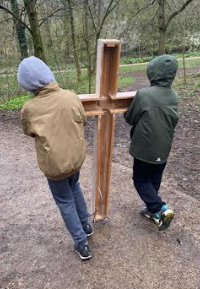
INCLUSION
This will be done by:
IMPACT OF OUR RELIGIOUS EDUCATION CURRICULUM
At Porter Croft, Children learn about the 6 major world religions and other world views, they gain cultural capital, through the delivery of a broad and balanced curriculum. The children have the opportunity to visit a place of worship for each of the six major world religions, this helps to develop the British value of Tolerance. Learning about different religions and experiencing them first hand promotes community cohesion by providing the knowledge, understanding and respect to break down barriers.
Our curriculum is designed to promote questioning, thinking and enquiring. Opportunities are built in to reflect during lessons which help our children to develop and morally.
Godly play and reflection time in lessons helps our children to develop spiritually- giving children the time to think about life’s big questions.
Children’s progress in Religious Education is assessed continuously using on-going Assessment for Learning. Teachers’ also assess children on a termly basis giving children an overall level of ‘emerging’ ‘secure’ or ‘greater depth’. Teachers will use the assessment sheets that cover the vocabulary and learning objectives for each unit. R.E levels will be submitted to the R.E coordinator every term. Evidence will include written and pictorial evidence, and observations of other indicators, such as comments made or questions raised by children in discussion. Children will also be involved in self-assessment which will be built into each unit of work.
Each term, the R.E coordinator will carry out R.E monitoring, this is, book looks, lesson drop ins and pupil voice. A record of this work scrutiny will be kept as evidence.
USEFUL RELIGIOUS EDUCATION WEBSITES

https://www.topmarks.co.uk/Search.aspx?Subject=25
My Life, My Religion
https://www.bbc.co.uk/programmes/b05pc1c9
CBeebies Let’s Celebrate
https://www.bbc.co.uk/cbeebies/shows/lets-celebrate
BBC Teach
https://www.bbc.co.uk/teach/ks1-religious-studies/zmtvwty
https://www.bbc.co.uk/teach/ks2-religious-studies/z6pbqp3
Top Marks
https://www.topmarks.co.uk/Search.aspx?Subject=25
Bible for Children (in 468 different languages)
SikhNetKids
https://www.sikhnet.com/pages/sikhnet-stories-children
Islam4kids
https://www.islam4kids.org/pillars-of-islam
REQuest (Christian)


